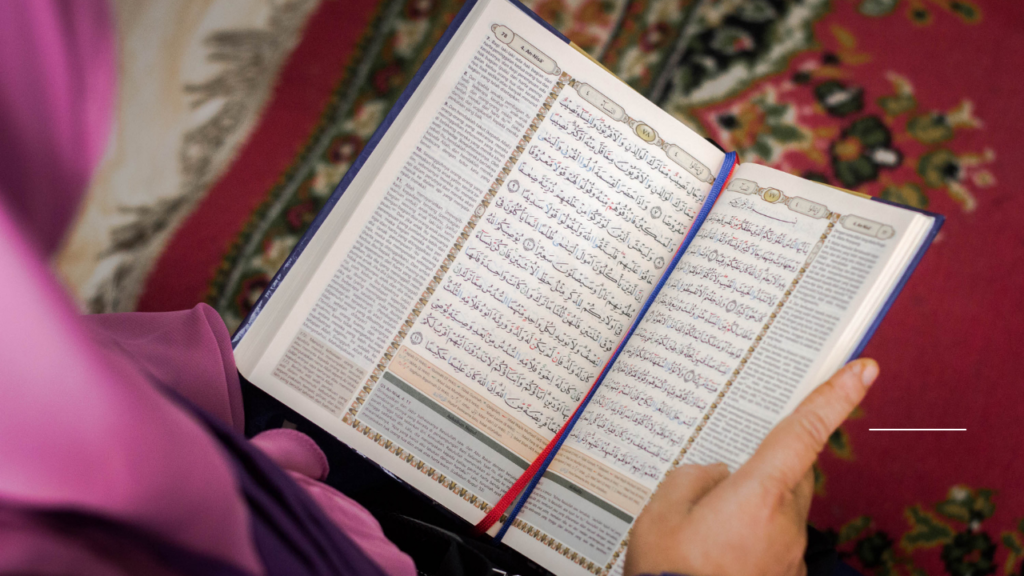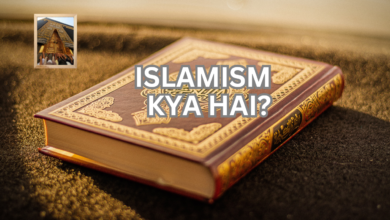Women in Islam?
The status of women in Islam is one of equal spiritual worth and dignity. Islam recognizes the fundamental rights of women and emphasizes their role in society.

Introduction
Women in Islam have played significant roles throughout the history of the religion. While there are ongoing debates and discussions about the status and treatment of women in various Muslim-majority countries, it is essential to recognize that Islam itself contains a rich tradition of empowering and protecting women’s rights. This article aims to explore the multifaceted aspects of women in Islam, shedding light on their roles, rights, and the challenges they face in contemporary society.
Historical Perspective
- The Prophet’s Legacy: Islam was founded in the 7th century CE, at a time when many Arabian societies practiced female infanticide and denied women their fundamental rights. The Prophet Muhammad’s teachings radically improved the status of women. He advocated for women’s rights to inherit, own property, and participate in social and economic activities.
- The Quranic Guidance: The Quran, the holy book of Islam, contains several verses emphasizing the equal spiritual worth of men and women. It affirms the importance of education, ethics, and justice for women. One famous verse states: “And their Lord has accepted them and answered [their prayer], ‘Never will I allow to be lost the work of [any] worker among you, whether male or female; you are of one another’” (Quran 3:195).
Also check.
- What is Laylat al-Qadr?
- What is Jesus Real Name?
- What Do You Say on Eid?
- Why is Hajj Important?
- Why is Hajj Important?
Rights and Empowerment
- Education: Islam encourages both men and women to seek knowledge. The Prophet Muhammad is reported to have said, “Seeking knowledge is mandatory for every Muslim.” Many Muslim-majority countries have made significant strides in educating women, and female literacy rates have improved over the years.
- Economic Rights: Islam grants women the right to own and manage their property and wealth independently. They are entitled to their share of inheritance, a matter explicitly stated in the Quran. This inheritance can be a vital resource for women’s economic empowerment.
- Marriage and Divorce: Islamic law provides women with the right to choose their spouse, known as the “consent of the bride.” Additionally, women have the right to initiate divorce in certain circumstances, ensuring that they are not trapped in unhappy or abusive marriages.
Challenges Faced by Women in Islam
- Cultural Interpretations: While Islam promotes gender equality, cultural interpretations can vary widely. Some communities may adhere to patriarchal traditions, leading to the restriction of women’s rights. This often results in a gap between the ideal principles of Islam and their practical application.
- Legal Discrimination: In some Muslim-majority countries, legal systems have been criticized for failing to fully protect women’s rights, especially in the areas of divorce, custody, and inheritance. Legal reforms are essential to align national laws with the principles of Islamic justice.
- Lack of Representation: Despite the Quran’s teachings on equality, there is a lack of female representation in religious leadership roles in many Islamic societies. Encouraging women’s participation in religious scholarship and leadership positions is crucial to promoting their rights within the faith.
- Misinterpretation: Like any religion, Islam is open to misinterpretation. Some extremist groups have used a skewed interpretation of Islamic teachings to justify violence and oppression, affecting women and their rights.
Conclusion
Women in Islam have a rich heritage of rights and empowerment rooted in the Quran and the Prophet Muhammad’s teachings. While there have been significant advancements, challenges persist, mainly stemming from cultural and societal practices, legal discrepancies, and misinterpretations. To empower women in Islam fully, there must be a concerted effort to align cultural practices and legal systems with the faith’s principles of equality and justice. Emphasizing education, leadership opportunities, and gender equality within Islamic societies is essential to realizing the full potential of women in Islam.

FAQs
What is the status of women in Islam?
The status of women in Islam is one of equal spiritual worth and dignity. Islam recognizes the fundamental rights of women and emphasizes their role in society.
Do women have the right to education in Islam?
Yes, Islam encourages both men and women to seek knowledge. The Prophet Muhammad stressed the importance of education for all Muslims.
Do women have property and inheritance rights in Islam?
Yes, women in Islam have the right to own, manage, and inherit property. The Quran specifies their share of inheritance, depending on the family situation.
Can women work in Islam?
Islam does not prohibit women from working. In fact, the Prophet’s first wife, Khadijah, was a successful businesswoman. Women are encouraged to engage in lawful economic activities.
What rights do women have in marriage and divorce in Islam?
Women have the right to choose their spouse (consent of the bride) and have the right to initiate divorce in certain circumstances, ensuring their well-being in marriage.
Are women allowed to lead prayers in Islam?
In some branches of Islam, women can lead prayers among other women. However, this practice varies among different Muslim communities and schools of thought.
Is wearing the hijab obligatory for Muslim women?
The hijab (headscarf) is a symbol of modesty and is recommended in Islam, but its usage varies based on personal choice and cultural factors. It is not universally obligatory.
What are the challenges women face in Muslim-majority countries?
Challenges women face can include cultural interpretations that restrict their rights, legal discrepancies in areas like divorce and inheritance, and lack of representation in religious leadership roles.
How does Islam address domestic violence and abuse against women?
Islam condemns violence and abuse within families. The Prophet Muhammad emphasized treating one’s spouse with kindness and respect. There are legal and religious provisions to protect women from abuse.
Can women hold leadership roles within the Islamic community?
While women can and do hold leadership roles in various Muslim communities, there is a lack of representation in religious leadership roles in many societies. Efforts are being made to increase their involvement in religious leadership.




